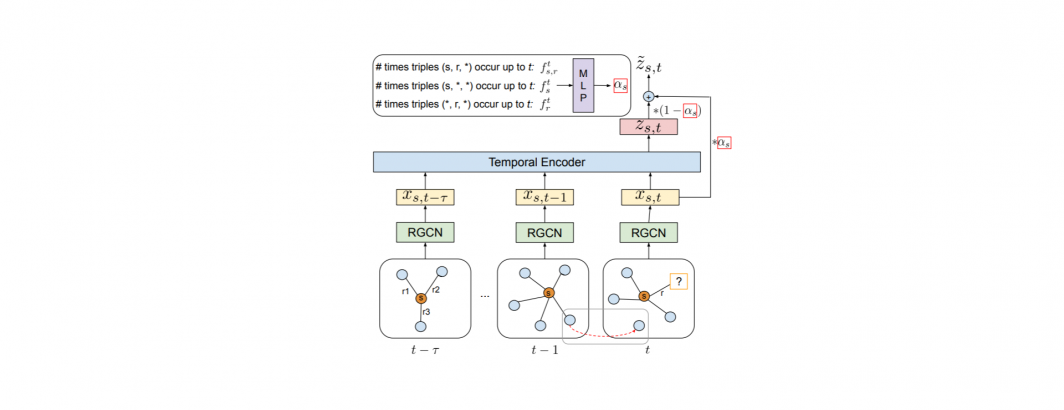
This paper by researchers at McGill University's School of Computer Science uses GDELT as a test dataset for their work on temporal knowledge graphs:
Inferring missing facts in temporal knowledge graphs (TKGs) is a fundamental and challenging task. Previous works have approached this problem by augmenting methods for static knowledge graphs to leverage time-dependent representations. However, these methods do not explicitly leverage multi-hop structural information and temporal facts from recent time steps to enhance their predictions. Additionally, prior work does not explicitly address the temporal sparsity and variability of entity distributions in TKGs. We propose the Temporal Message Passing (TeMP) framework to address these challenges by combining graph neural networks, temporal dynamics models, data imputation and frequency-based gating techniques. Experiments on standard TKG tasks show that our approach provides substantial gains compared to the previous state of the art, achieving a 10.7% average relative improvement in Hits@10 across three standard benchmarks. Our analysis also reveals important sources of variability both within and across TKG datasets, and we introduce several simple but strong baselines that outperform the prior state of the art in certain settings.